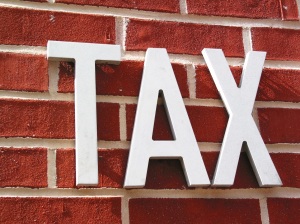Half of Americans are Failing at Financial Planning
 Planning for your future is something that everyone should be doing. From the time you are done with college, you should have your eyes set on the goal: retirement. This means investing your money, building your business or career, and making sure that you’re setting aside enough to live comfortably in retirement. Even with all of the education out there, a recent study by Genworth found that about half of Americans are not prepared for retirement. Your accountant in Billings, Montana looks deeper.
Planning for your future is something that everyone should be doing. From the time you are done with college, you should have your eyes set on the goal: retirement. This means investing your money, building your business or career, and making sure that you’re setting aside enough to live comfortably in retirement. Even with all of the education out there, a recent study by Genworth found that about half of Americans are not prepared for retirement. Your accountant in Billings, Montana looks deeper.
Americans’ Financial Concerns
The Genworth study looked into a lot of different variables and polled thousands of individuals on their savings and investment habits, as well as their outlook on where they will be during retirement. The focus was obviously on finances, but there are other major areas of concern as well.
For instance, when asked what their major concerns were concerning retirement and getting older, 71% listed health as a major concern. And there is good reason for it. American healthcare is in a transitional period. With the Affordable Care Act being rolled out slowly, people living longer than ever, and all of the other flair around healthcare and health insurance, it is reasonable that people wonder: what will healthcare look like in 10, 20, or 30 years?
The second ranking area of major concern was finances. Study after study after study shows that Americans simply are not good savers. So when they finally realize, at age 40, they need to start saving for retirement, it is too late to do it comfortably. In fact, the study found that the average age to start saving is age 33, and the average balance of a retirement plan is a mere $7,360. Considering that most people said they need about $1.7 million to retire comfortably, at the average savings rate they will have about 1/3 of what they need by the time they hit age 65. Here’s some of the math behind retirement.
Start at age 21 and save $5,000 per year. Compounding at 7%, by the time you are age 65 you will have $1.48 million. Bump your savings up to $6,000 per year and that grows to $1.78 million.
Start at age 31 and save $5,000 per year and you will have just $840,000 by age 65.
Start saving at age 41, and if you only put aside $5,000 per year, you will have just $374,000 when you want to retire.
The study dives into a lot of different aspects of Americans and their retirement goals. If you want to read the full study, it can be found on the Genworth website. It has a lot of good action steps to help you get going. Also, if you want to do your own retirement savings calculations, check out the Moneychimp Compound Interest Calculator.
It All Starts with Planning
Your accountant in Billings, Montana is a great resource for all of your finance and planning needs. He can obviously get you the best tax refund possible, but he can also point you in the right direction of who can help you with investment, insurance, and other financial planning needs.
Practical Taxes is a full service accounting firm in Billings, Montana. For the next couple weeks we are focusing on getting tax returns completed, but we offer a whole host of other services. For those going into business, we do business consulting; for those with employees we do payroll and have online payroll services. Give us a call at 406-894-2050 to learn more.







